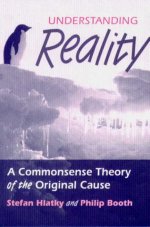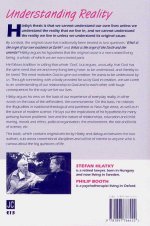 |
 |
Understanding Reality:
A Commonsense Theory of the Original Cause
![]()
This website is intended to draw attention to the thesis of the Swedish-based philosopher, Stefan Hlatky, that an understanding of reality is a prerequisite for the solution of individual and social problems. The book presents the particular hypothesis for which Hlatky argues, as well as arguments against other generally held views of the original cause. The book has been freely available in total here since it was first published in 1999. Some of the text is highlighted in black: these are passages referred to in an associated Blog launched in January 2019. An eBook version is also available on this site.
![]()
|
The back cover of the book reads as follows:
Hlatky's thesis is that we cannot understand our own lives unless we understand the reality that we live in, and we cannot understand the reality we live in unless we understand its original cause. By contrast, the original cause has traditionally been treated as two questions: What is the origin of our own existence on Earth? and What is the origin of the Earth and the universe? Hlatkly argues his hypothesis that the original cause is a non-created living being, a whole, of which we are the non-created parts. He follows tradition in calling the whole 'God', but argues, unusually, that God has the same need that we and every living being have: to be understood, and thereby to be loved. This need motivates God to give out creation: he wants to be understood by us. Through connecting with a body provided for us by God in creation, we can come to an understanding of our relationship to God and to each other, with huge consequences for the way we live our lives. Hlatky argues his view on the basis of our experience of everyday reality, in other words on the basis of the self-evident, the commonsense. On this basis, he criticises the illogicalities in traditional theological and pantheist or New Age views, as well as in the stance of modern science. He lays out the implications of his hypothesis for many pressing human problems: love and the nature of relationships, education and child-rearing, morals and ethics, political organisation, the environment, the role and limits of science, etc. This book, which contains original articles by Hlatky and dialogues between the two authors, cuts across conventional disciplines and will be of interest to anyone who is curious about the big questions of life. |

